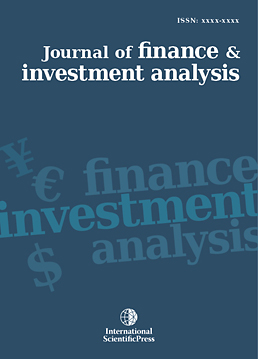Journal of Finance and Investment Analysis
Effects of Asset Allocation on Financial Performance of Unit Trust Schemes in Kenya
-
 [ Download ]
[ Download ]
- Times downloaded: 9403
Abstract
Unit Trust Schemes provide diversification, liquidity, professional management among other benefits. In order to diversify the funds raised from various unit holders, fund managers adopt a criterion with which funds are allocated optimally. A descriptive research design was adopted, and the study period was 5-years. The ratio of the composition of different asset classes to the fund value was used as the independent variables. Fund age was used as the control variable. Sharpe ratio was used to measure investment returns and that represented the dependent variable of the study. Data was collected from secondary sources and a multiple linear regression model was adopted to assess the association of the variables. Collected data showed normality traits, positive autocorrelation when measured using Pearson correlation coefficients. The data also showed mixed results for multicollinearity tests. The weight of money market instruments, corporate bonds, treasury bonds and equity significantly affected performance of Unit Trust Scheme funds. They all had probability values in the interval of 0 and 0.05. Therefore, the study concluded that asset allocation significantly affects how a fund will perform. Other factors such as timing, manager experience and prevailing economic conditions have to be considered when evaluating performance of a fund.
Keywords: Asset allocation, Financial performance, Unit trust schemes, Kenya.
